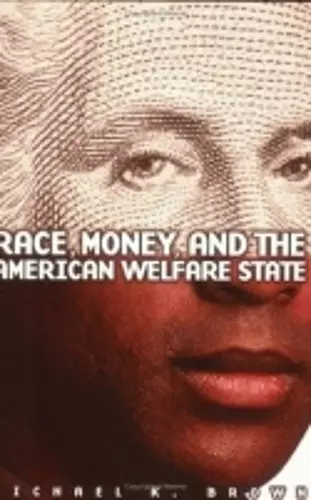Race, Money, and the American Welfare State
Format:Hardback
Publisher:Cornell University Press
Published:12th Apr '99
Currently unavailable, and unfortunately no date known when it will be back
This hardback is available in another edition too:
- Paperback£32.00(9780801485107)

The American welfare state is often blamed for exacerbating social problems confronting African Americans while failing to improve their economic lot. Michael K. Brown contends that our welfare system has in fact denied them the social provision it gives white citizens while stigmatizing them as recipients of government benefits for low income citizens. In his provocative history of America's "safety net" from its origins in the New Deal through much of its dismantling in the 1990s, Brown explains how the forces of fiscal conservatism and racism combined to shape a welfare state in which blacks are disproportionately excluded from mainstream programs.Brown describes how business and middle class opposition to taxes and spending limited the scope of the Social Security Act and work relief programs of the 1930s and the Great Society in the 1960s. These decisions produced a welfare state that relies heavily on privately provided health and pension programs and cash benefits for the poor. In a society characterized by pervasive racial discrimination, this outcome, Michael Brown makes clear, has led to a racially stratified welfare system: by denying African Americans work, whites limited their access to private benefits as well as to social security and other forms of social insurance, making welfare their "main occupation." In his conclusion, Brown addresses the implications of his argument for both conservative and liberal critiques of the Great Society and for policies designed to remedy inner-city poverty.
A sound understanding of the present must begin with the kind of analysis of the past that Brown provides in this provocative piece of scholarship.
-- Joseph P. McCormick II, Howard University * American Political Science Review *Brown offers an original and a provocative interpretation of the American welfare state and its limits.... By showing how policy decisions have structured and restructured the political environment shaping policy, his analysis of the interplay of policy and politics is a masterful contribution to social theory and history. And his argument about the disproportionate exclusion of African Americans from America's welfare state is one that should concern all scholars. Indeed, it should concern all citizens.
-- Gerald Friedman, University of Massachusetts at Amherst * Journal of Economic History *Historians will find Brown's synthesis on race, welfare, and taxes provocative.
-- Julian Zeilizer, State University of New York, Albany, NY * The Journal of American History *This is an important book for students of race and social policy.
-- Dalton Conley, Yale University * American Journal of Sociology *Brown provides an exceptionally rich history of the emergence of a 'racially stratified welfare state' during the New Deal.... Brown's analysis of the systematic exclusion of blacks from mainstream economic reforms and private benefits and the stigmatizing ways in which they are admitted to public programs has important implications for sketching the political economy of American democracy and for assessing contemporary responses to inner-city poverty.
* Virginia Quarterly Review *Political scientist Michael K. Brown believes that race penetrates the deepest roots of America's welfare state. Although Brown departs from the focus on gender popular in recent welfare state historiography, he remains alert to its impact, and his observations about gender are trenchant.... Striking and controversial insights pepper his discussion of these other corners of the welfare state.
* American Historical ReviISBN: 9780801435102
Dimensions: 229mm x 152mm x 33mm
Weight: 907g
416 pages